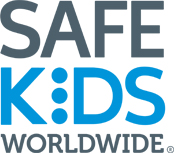Washington, D.C. – More teens die in motor vehicle crashes than from any other cause of death, about 2,500 per year. Fatalities are split almost equally between teen drivers (56 percent) and passengers (44 percent). In half of the fatal crashes, the teen was not wearing a seat belt. To develop strategies to drive down the number of teens killed in cars (which claims fully 25 percent of all preventable injuries among children), Safe Kids Worldwide conducted a survey among teen passengers and drivers.
The report, “Teens in Cars,” was funded as part of a $2 million grant from the General Motors Foundation. It was based on a national survey of 1,000 teens ages 13 to 19.
One in four teens surveyed said they don’t use a seat belt on every ride. The top reasons they gave for not buckling up were that they forgot or it was not a habit (34 percent), they were not going far (16 percent), or the seat belt was not comfortable (11 percent). Asked why other teens don’t buckle up, one in three teens (33 percent) said that going to a party was a reason.
Presley Melton lost her best friend, Lindsay, in a crash she survived in 2006. “I almost always buckle up, but we were just going around the corner, so we let it slide,” said Presley, who was 15 at the time. “Every time I think of Lindsay, I wish we had taken that extra moment to buckle up.” Presley sustained multiple fractures to her face and body, remained in a coma for more than a month after the crash, and is still battling a severe brain injury.
“No one starts their day anticipating that they’re going to get into a car crash. But we all know that it only takes one time to be riding in a vehicle without buckling up for a life to be changed forever,” said Kate Carr, president and CEO of Safe Kids Worldwide. “This survey illustrates that we must be even more vigilant in our efforts to reach teens with messages that will resonate so they understand the importance of buckling up every ride, every time.”
The survey also addressed the perilous practice of distracted driving. Thirty-nine percent of teens said they have ridden with a teen driver who was texting, and 95 percent said they think other teens have ridden with drivers who were texting. Teens who don’t always use seat belts are also more likely to report that they text while driving than those who say they wear a seat belt every time. About 43 percent of teens reported riding as a passenger with a teen driver who was talking on a phone.
These behaviors reflect the habits of their parents. More than half of teens said they have seen a parent talking on the phone while driving, and 28 percent have been riding in a car with a parent who was texting.
It is not surprising that 49 percent of teens in the survey reported feeling concerned for their safety when riding with a teen driver and 31 percent of teens said they have felt unsafe with a parent driving.
When asked what teens did in a situation when in a car with someone driving dangerously, four in ten teens said they asked the driver to stop, but almost the same number said they did nothing.
“It can be uncomfortable for anyone to speak up when they feel unsafe riding in a vehicle, and perhaps even more so for teens riding with their peers,” said Mike Robinson, GM vice president of Sustainability and Global Regulatory Affairs who serves on the boards of both Safe Kids Worldwide and the GM Foundation. “The results of this research further underscore the importance of reaching teens with the life-saving messages to buckle up during every ride and to speak up when they don’t feel secure.”
Tips for Families
- Buckle up on every ride, every time. This is important for everyone, both drivers and passengers.
- Talk to teens and kids about ways to speak up if a driver of any age isn’t driving safely.
- Be a role model in all your driving habits.
About Safe Kids Worldwide
Safe Kids Worldwideis a global network of organizations dedicated to providing parents and caregivers with practical and proven resources to protect kids from unintentional injuries, the number one cause of death to children in the United States. Throughout the world, almost one million children die of an injury each year, and almost all of these tragedies are preventable. Safe Kids works with an extensive network of more than 600 coalitions in the United States and in 23 countries to reduce traffic injuries, drownings, falls, burns, poisonings and more. Since 1988, Safe Kids has helped reduce the U.S. childhood death rate from unintentional injury by 55 percent. Working together, we can do much more for kids everywhere. Join our effort at safekids.org.
About the GM Foundation
Since its inception in 1976, the GM Foundation has donated hundreds of millions of dollars to American charities, educational organizations and to disaster relief efforts worldwide. The GM Foundation focuses on supporting Education, Health and Human Services, the Environment and Community Development initiatives, mainly in the communities where GM operates. Funding of the GM Foundation comes solely from GM. The last contribution to the GM Foundation was made in 2001. For more information, visit www.gm.com/gmfoundation.
